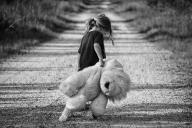A new discovery shows that children from bigger families often demonstrate poorer mental health than kids with fewer brothers and sisters.
The specifics of this trend vary based on factors such as the age spacing among siblings.
What's particularly noteworthy is that this overall pattern held true in both the USA and China, as highlighted by the specialists of the study.
How it was discovered
The experiment involved more than 9,300 teens in China and over 9,000 American teens.
The results indicated that Chinese teens with no siblings exhibited the most stable mental health, while in the US, those with no or one sibling showed similar mental health.

The experiment shows that having bigger families could result in fewer resources and also attention from parents, which can damage their mental health.
The negative effect is more pronounced when kids are born closely in age, leading to competition for similar parental resources.
Also, the scientists highlight that the quality of family relationships may also play a role in determining mental health results.
Why it's vital to know
While there are some positive effects tied to having more brothers and issters, the general impact on mental health seems to lean more towards the negative side.
Understanding these consequences is important as fertility rates decrease in the U.S. and other countries.
Previously, we talked about modern robotic arms.









